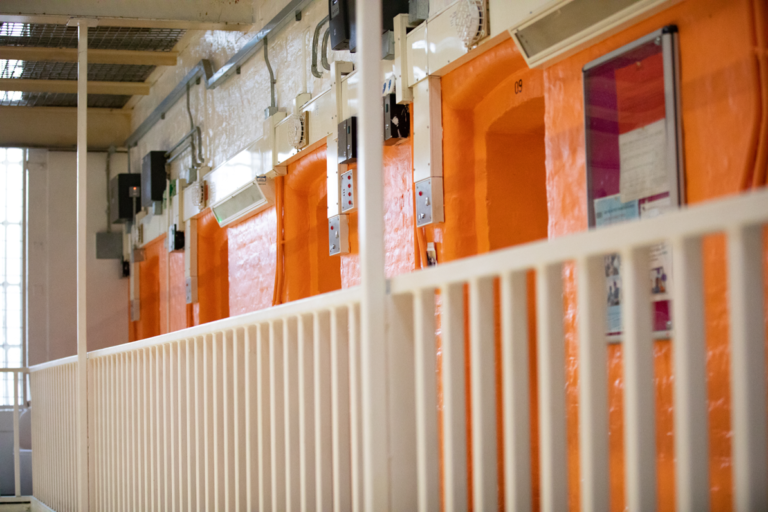Mental health crisis forces prisoners into inhumane isolation

Due to a lack of alternative provision, the prison service is too often using segregation as a way of managing and caring for prisoners with severe mental health needs.
Segregation exists as a means to manage poor behaviour, where prison managers consider it necessary to remove a prisoner from the general population and isolate them, in order to maintain “good order and discipline”. Prisoners can also be moved to care and separation units (CSUs) for their own safety if they are at risk of violence from other prisoners.
The Independent Monitoring Board (IMB) has today (25 January) published a report compiling the repeated failings that local IMBs have raised over recent years, as they continue to find mentally unwell men in CSUs:
- Prisoners with severe mental health needs were spending lengthy periods segregated, over 800 days in one instance. The mental wellbeing and behaviour of the men often deteriorated further during these prolonged periods.
- Many IMBs repeatedly reported concerns over the 28-day target to transfer severely unwell men from prison to secure hospital not being met. Delays were found throughout the entire process – at referral, assessment, and transfer stage.
- Prisoners were often moved back-and-forth to CSUs from prison healthcare units and wings, making it harder to track the cumulative time spent segregated.
IMBs uncovered multiple case studies of prisoners who have spent extended periods in CSUs:
- At a category C training prison, a man with autism, a schizophrenia diagnosis and displaying severe ADHD symptoms, cumulatively spent almost nine months in the CSU, during which his mental health dramatically deteriorated.
- At a category B reception and resettlement prison, serious concerns were raised by the Board about a prisoner with complex mental health needs who was segregated for 300 days while awaiting assessment for transfer to a secure mental health hospital. By the time he was assessed and transferred, he had spent over 550 days in the CSU – nearly 20 times over the target transfer time.
- Several Boards had specific concerns about prisoners serving indeterminate Imprisonment for Public Protection (IPP) sentences and displaying serious mental health conditions who were regularly in the CSU, or were spending prolonged periods there.
At a high security prison, an IPP prisoner with a personality disorder was segregated for over 800 days before being successfully transferred to an appropriate unit.
At a category B training prison, an IPP prisoner with a serious mental illness and physical and learning disabilities, was held in the CSU for over 250 days. The Board reported concerns over his deterioration, describing him as confused, tearful, unpredictable, and volatile.
Without providing appropriate mental health provision in the community and tighter monitoring of the transfer timelines from prison to hospital, it is likely that CSUs will continue to be used as a stop gap for mentally unwell men and transfer targets will continue to be regularly exceeded. The proposed reform of the Mental Health Act would have written the 28-day target into law, but the Bill is no longer being progressed.
Elisabeth Davies, IMB National Chair commented:
“Segregating any prisoner, especially those with mental health needs, is not a decision taken lightly by prison managers. While they clearly feel that they have no other option, CSUs should not be used as holding bays for these vulnerable individuals.
While local IMBs found that overall staff worked hard to support prisoners in the best way that they could, collectively they have reported a disturbing picture of mentally unwell men spending lengthy periods in isolation, which often results in a deterioration of their mental health.
If anything is to change, the solution is, and has always been, providing appropriate mental health provision in the community and tighter controls around the transfer times from prison to hospital.
Although it would not have solved the problem entirely, the proposed Mental Health Bill, which was due to make the 28-day transfer target a statutory requirement, would have taken us one step closer to this.
In the meantime, segregation will continue to be used as the wrong tool to manage the mental health crisis in prisons.”
On the 15 February 2024, the IMB received a letter from Maria Caulfield MP, Parliamentary Under Secretary of State at the Department of Health and Social Care, in response to this publication.
On the 27 February 2024, the IMB also received a letter from Edward Argar MP, Minister of State for Justice, in response to this publication.
